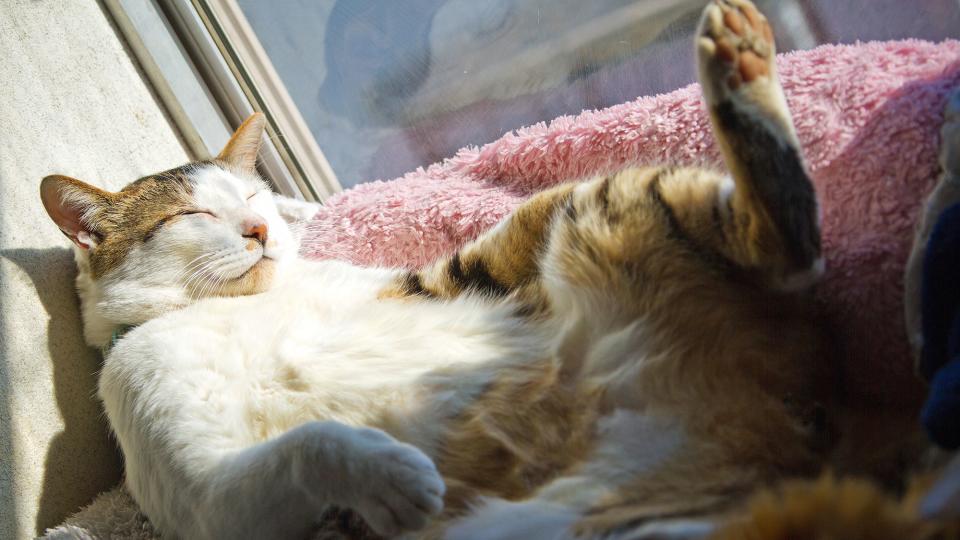U.S. Vet Expert Shares How to Keep Your Pets Safe During a Heat Wave: 'Heat Stroke Is Serious'

Getty
This summer, heat waves have hit countries across in globe, resulting in record-breaking temperatures and dangerous conditions for humans and animals.
"It's a good bet that if it's hot outside for you, it's even hotter for your pet," Dr. José Arce, DVM, and president of the American Veterinary Medical Association (AVMA) told PEOPLE.
As temperatures remain high worldwide, Dr. Arce wants to remind pet owners that extreme heat can be dangerous — even fatal — to cats and dogs. Like humans, household pets can suffer from heat exhaustion and heat stroke when exposed to high temperatures for too long. This is true for both indoor and outdoor pets.
According to Dr. Acre, during the summer months, or whenever temperatures are high, pet parents should keep an eye out for signs of heat exhaustion in their furry friends. Heat exhaustion often precedes heat stroke — a life-threatening heat-related illness where the body can no longer cool itself down.
The symptoms of heat exhaustion for cats and dogs include anxiousness or restlessness, excessive panting or drooling, vomiting or diarrhea, abnormal gum or tongue color, and unsteadiness or collapse. Additionally, cats suffering from heat exhaustion may start open-mouth breathing.
RELATED: Dog Finds New Home with Tennessee State Trooper Who Rescued Her from Extreme Heat
"If you observe this in your cat, it is always an emergency situation. Any cats exhibiting this should be brought to the veterinarian immediately for emergency care," Dr. Arce added about open-mouth breathing in felines.
The veterinarian also recommends taking your pet to the vet without delay if you observe any of the listed heat exhaustion symptoms to prevent the issue from worsening.
"Heat stroke is a serious condition that can lead to death. Always be careful with your pets in hot weather," Dr. Arce said.
To prevent heat-related illnesses from taking hold of your pet, Dr. Arce recommends providing your animal companion with constant access to fresh water, shade in outdoor areas, and well-ventilated space indoors.
During hot weather, time outdoors should be limited for pets. Dr. Arce suggests trying to time dog walks for early morning and evening — when temperatures are cooler — and to shorten afternoon strolls. While out on walks, it is best to avoid walking on cement or asphalt as those surfaces can heat up in summer weather and burn a canine's paw pads. Dog owners should try to keep their walks in the shade or on the grass during a heat wave.

Getty
"Never leave a pet in your car. Every year, many dogs die from heat exhaustion because they are left in parked vehicles. The temperature inside a vehicle can rise almost 20 degrees Fahrenheit in just 10 minutes and almost 30 degrees Fahrenheit in 20 minutes. So on a 70-degree day, the temperature inside of your vehicle can quickly reach 100 degrees, which is much too hot for your pet," Dr. Arce said about protecting your pet from extreme heat during car trips.
RELATED: UPS Driver, 24, Dead from Suspected Heat Stroke After Passing out in His Truck During Delivery
"Cracking the windows and parking in the shade makes no difference. Even if you think it will just be a quick stop, leave your pet at home or postpone the errand for when your pet is not with you," he added.
There is no set temperature where heat becomes dangerous to pets because each animal's sensitivity is different. Heat can be more harmful to some pets due to their weight, age, medical conditions, and activity level.
"Pets that are older, obese, or have certain medical conditions may be at an increased risk of heat stroke. In general, pets with longer or darker fur, or pets that are brachycephalic — that is, pets with flat or pushed-in faces, like pugs or Persian cats — may have extra trouble with managing heat. If you have questions or concerns about your pet, talk to your veterinarian," Dr. Arce advised.

Getty
The veterinarian noted another summer danger some pet parents might overlook: sunburns.
"Sunburn is another summer pet safety risk and one many pet owners may not be aware of. While all dogs may be susceptible, some dogs are more at risk for sunburn than others, such as hairless dog breeds, dogs with white or thin coats, and dogs with light-pigmented noses and eyelids," Dr. Arce said.
"Cats who enjoy sunbathing are at a higher risk of developing skin cancer; owners should allow shade and breaks from the sun," he added.
Pet-safe sunscreens are available for animals prone to sunburns. It is important that pet parents only use sunscreen designed for pets on their cats and dogs because other sunscreens can cause health issues in animals.

